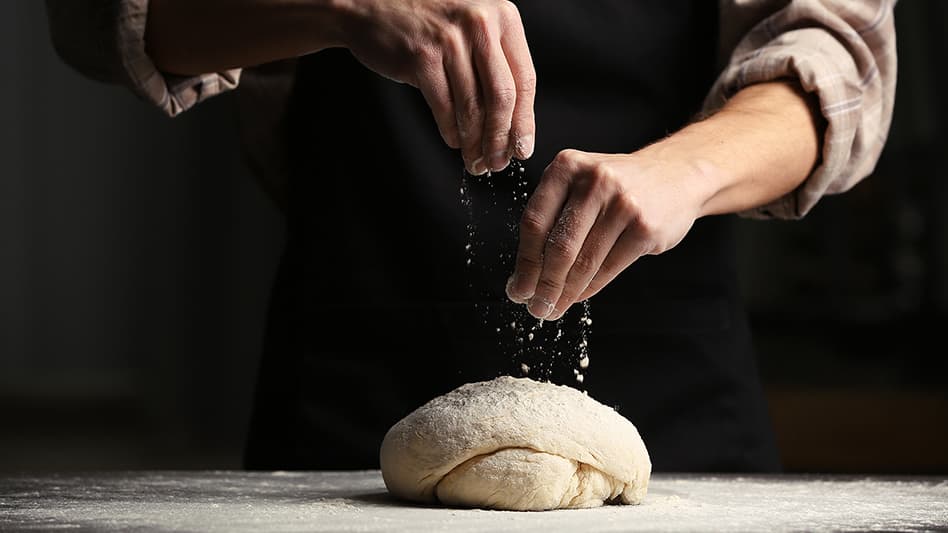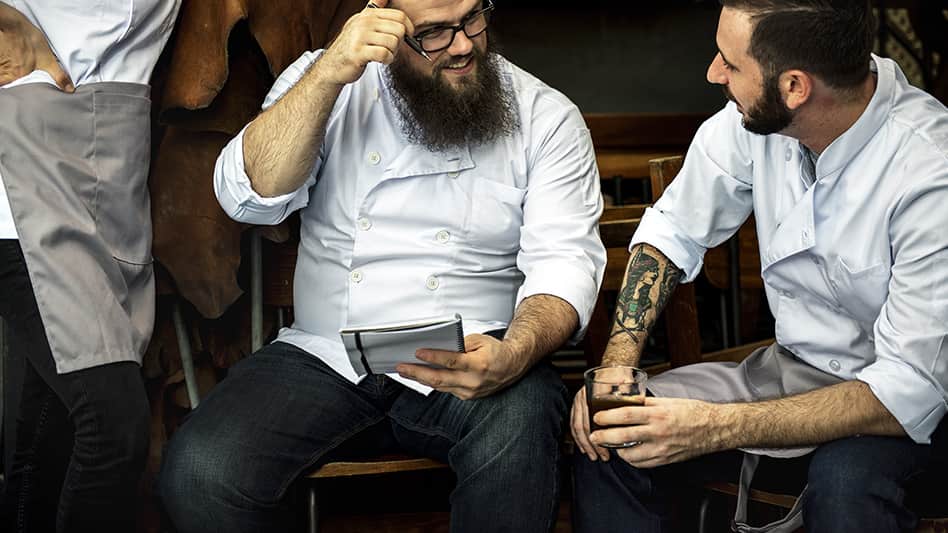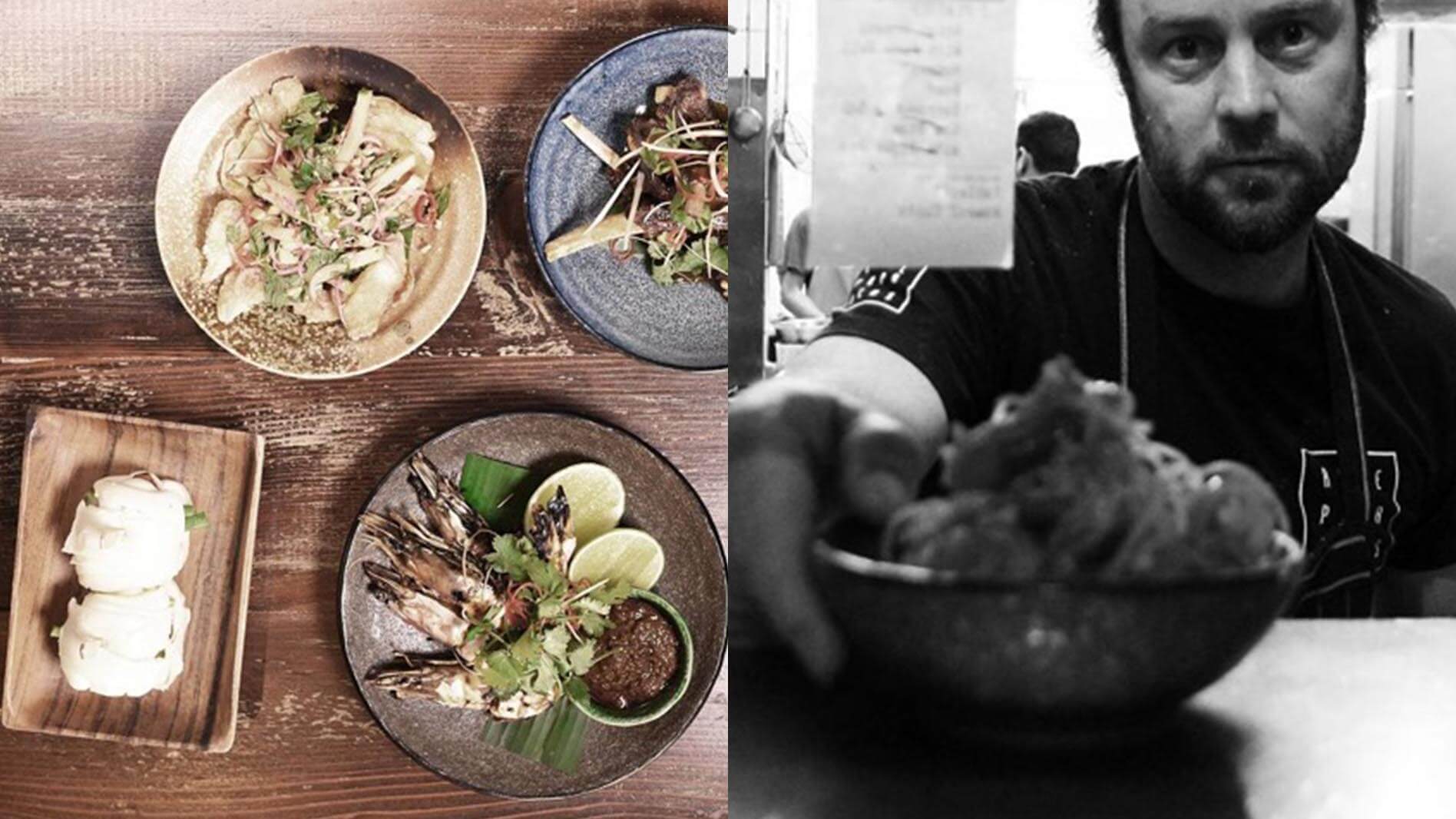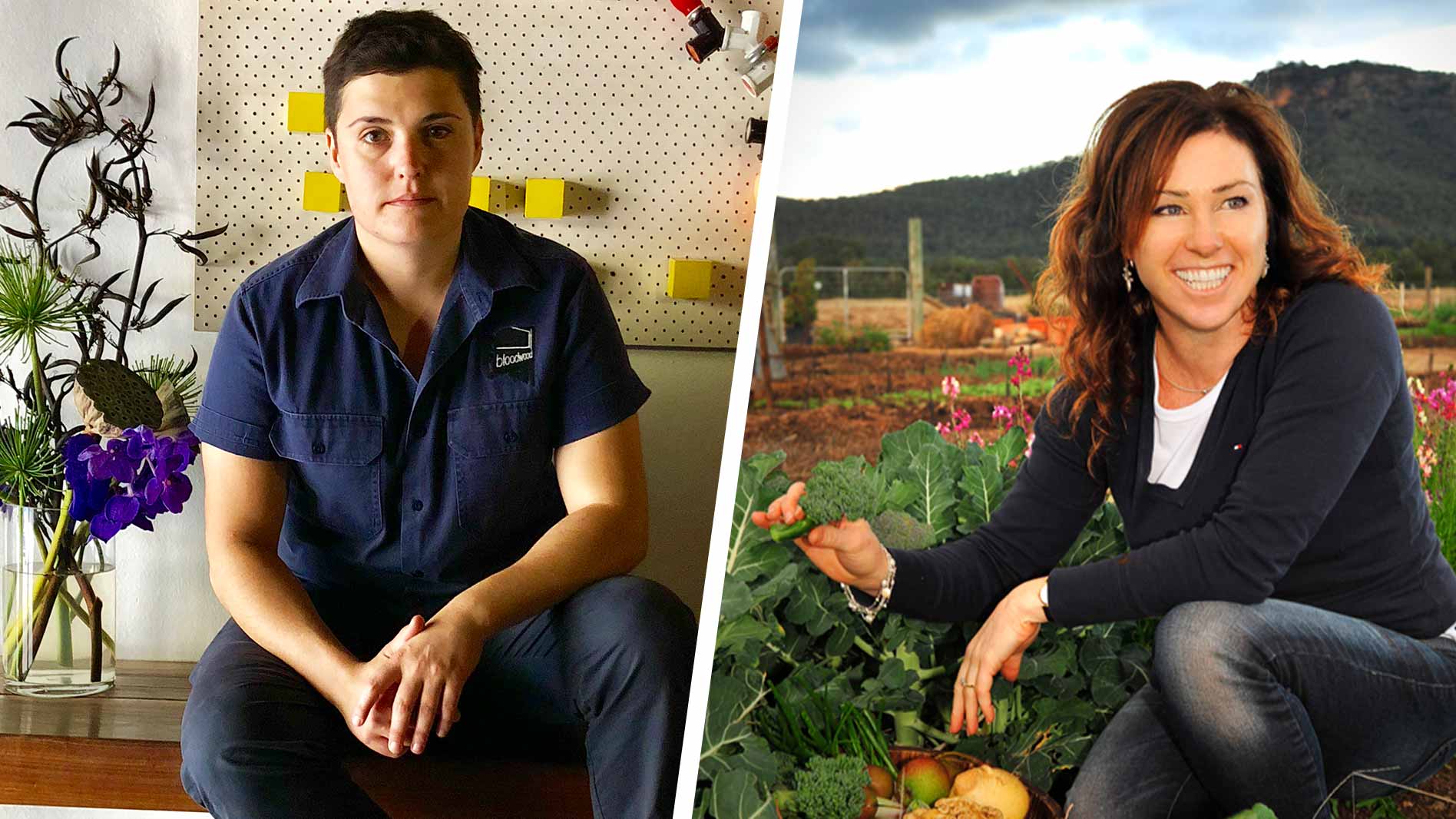Be inspired with recipes created by chefs.
Sign up for updates about products, special offers, news and promotional materials from Goodman Fielder.

Summary
Food provenance is increasingly on the menu for restaurateurs around the world – could your produce’s journey from the paddock, to the plate be a point of difference for your business?
The old adage goes: ‘If you eat, you should care about farming’.
As restaurateurs the world over are discovering, the public is increasingly concerned about where their vegetables are grown, what their produce is sprayed with and how many miles their meat has travelled.
Back in 2010, Jamie Oliver called out the western world on its poor eating habits, particularly in relation to our children. In a scene filmed for the documentary series Jamie Oliver’s Food Revolution, the chef asked a class of American first graders to identify a range of fresh fruit and vegetables. Over the next five cringeworthy minutes, the children failed to identify a single one. It was clear that they loved tomato ketchup and potato chips but had never seen tomatoes, potatoes, or any other produce in its natural form.
Six years later and (seemingly) at the peak of the paddock to plate dining trend, we would love to see a group of Australian first graders take this test. We would hope that they would fare better than their American counterparts. Australians appear to be more enthusiastic than ever to take their kids to properties where they can pull their veggies out of the dirt. They are also beginning to teach their children that the integrity of a kitchen’s produce is just as important as location and price point when choosing where and how they dine out.

|Image| The Strawberry Patch at Margan Restaurant in the Hunter Valley
The Australian Organic Market Report 2021 estimates the total value of the Australian certified organic industry to be over AU$2 billion. This represents a growth rate of 38% since 2011.
But it’s not just supermarket organics the public is looking for. Regional tourism is booming as properties in the Hunter and Barossa Valleys, once known solely for their wine production, are opening their doors and their veggie patches. Many of these gardens in vineyard regions can’t be certified organic due to spray drifts but they are hand worked and sustainably managed. New South Wales towns like Forbes and Orange allow city slickers to do farm stays and learn how to milk cows, shear sheep and harvest fruit.
In 2014, the number of people making overnight stays in New South Wales regional areas was a record-breaking 50.4 million. Byron Bay, once just a sleepy hippy hangout, is now the trendiest foodie trail around, with ethical eateries like Folk, Harvest Cafe and 100 Mile Table showcasing just how good it tastes to eat naturally.
Then there’s the phenomenon that is Three Blue Ducks at The Farm. It’s a biological farm that lets the whole family get back to basics; run amuck in the garden, buy fresh cut flowers and enjoy a meal that’s been tended, harvested, smoked and pickled on site.

|Image| The setting at Byron Bay’s Three Blue Ducks on the Farm
Mark LaBrooy, co-owner and head chef at Three Blue Ducks said the professional satisfaction he feels using produce from the farm is incredibly rewarding.
“From a chef’s perspective, it’s been an amazing journey in Byron Bay, just as far as the produce is concerned,” he said.
“I have the rare opportunity to walk around the field and ask the gardeners to pick the fennel at a baby stage or the beetroot at a medium size and know that we’re going to be able to taste the difference right then and there. It’s amazing to be able to see it in the ground in its natural form and then you basically bring it into the kitchen still alive and use it.’
Lisa Margan, a professional chef and Director of Margan, a Hunter Valley winery and restaurant, is similarly rapt about the benefits of working with produce from the garden.
“The best thing about cooking with veggies from your own property is being inspired by the produce at hand,” she said.
“At Margan, we can pick it in the morning and it can be on the plate mere hours later. We can grow interesting things. We can reduce costs by harvesting our seeds and growing things from scratch. We don’t pay the freight miles that come with shipping food around. If we run out of produce we can quickly harvest more.

|Image| One of the wonderful, earthy dishes at Margan.
“And gardening is very therapeutic. All our restaurant team spend some time in the garden. We run a set degustation on Thursday nights where the menu is written that afternoon with whatever we harvest from the estate that day. It is an extension of our 100 metre meal, where everything is grown within 100 metres of the restaurant.”
It’s an ideal operating style, but being green is not without its challenges. Restaurateurs like LaBrooy might have an adoring foodie fan-base, but they continue to struggle to combat the supermarket generation’s insistence that we should be able to eat everything, all year round.
“The biggest challenge at Three Blue Ducks is sticking to your ethics,” LaBrooy said.
“I’ve just taken avocados off the menu at breakfast time because they’re simply not ready to go in our region and we’re thinking that the crowds are going to start rioting. Consumers are so blinded by the year-round availability at our regular supermarkets. It’s almost like it doesn’t matter what the quality of the produce is like, they just need to have it. At Three Blue Ducks, we’re trying to work the other way around; we ask, what’s the quality of the produce like? We need to have it when it’s at its best.”

|Image| Diners amongst the gardens at Three Blue Ducks in Byron Bay
This is a sentiment echoed in kitchens across the country. You’d be hard pressed to find a top restaurant in Sydney without its own kitchen garden or at least a specialist providore who supplies artisanal meat and vegetables when they’re at their best.
Of course, prepping fresh, sustainably produced veggies is always going to resonate with a particular section of the market, but the variable that’s really going to affect the driving forces of food production and sale in Australia is whether “mainstream” diners can be persuaded to eat seasonally and mindfully.
Related Ideas
25th March 2023
A Chef’s Guide to Gluten Free Baking
Want to know how to turn your bakery goods into a gluten free delight? Check out our gluten free baking guide now.
25th March 2023
The Importance of Mentorships in Hospitality
The hospitality industry is changing at a pace we have never seen before. To make these challenging times slightly easier, a greater emphasis needs to be placed on mentoring and training the younger generation of chefs to ensure the future of hospitality is stronger than ever before.
21st March 2023
How Chefs can Deal with Dietary Requirements in their Kitchen
One of the key issues that many chefs face in dealing with dietary requirements in the kitchen is that it changes the nature of their dish. We spoke to some experts on how they deal with dietary requirements in their kitchens.




